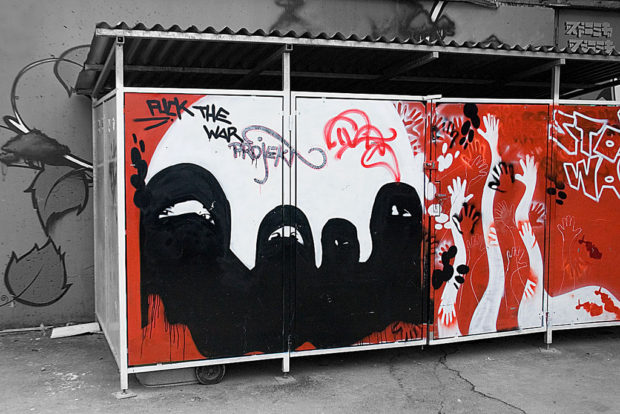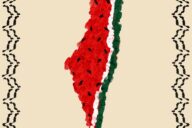This article reflects on the alienation sometimes experienced by Muslims in Westernized societies, the pressure they have experienced due to international terrorism and society’s suspicions, but also to closed-minded Muslim communities unable to see the distress some people is suffering. This is the story of Hamza Ahmad’s own personal experience as a Muslim living first in South Africa and then in Canada.
Hatred towards Islam is not exclusive to the Alt Right and Trump-types. So how does propaganda, poor mental health and haram police feed into the creation of an “Islamophobic Muslim”?
My Story
I was born and raised in South Africa and for the most part, things were great. I went to an all-boys school, played a lot of sport and excelled in my academics. As a part of this athlete world, there existed this strong culture of proving your masculinity, usually through acts of defiance and general misdemeanor. I was known for disrupting class by cracking smart jokes to gather laughter and I would constantly “roast” my peers at any opportunity I had. However, my notoriety took a hit when 9/11 happened and I was faced with an unexpected hurdle. For the first time, when I attempted to be funny in class, I got roasted and shut down. Apparently Osama Bin Laden was now a relative of mine…

Photo: George Rex
Propaganda
My peers and their low-hanging-fruit terrorist jokes quickly became annoying, because I had no comebacks. I felt emasculated and began hating my religion for placing a burden on me, that quite frankly, felt unfair. Identifying as a Muslim felt embarrassing and the misportrayal of Muslims in movies, TV shows and the news made my shame grow stronger by the fay. Islam was getting in the way of how I wanted to be treated by my peers, and in a desperate attempt to appear normal, I began diluting my traditional beliefs and practices. If asked, I told people I didn’t really follow Islam, I stopped bringing my mom’s ‘smelly Pakistani food’ to school and I would not utter a word of Urdu if anyone was around. I didn’t realize it then, but my attitude reflected what you would refer to as “Islamophobia internalized”.
Mental Health
My peers and their low-hanging-fruit terrorist jokes quickly became annoying, because I had no comebacks. I felt emasculated and began hating my religion for placing a burden on me, that quite frankly, felt unfair.
In 2010, my dad accepted a job offer and my family immigrated to Canada. Then began, at 16 years of age, my lengthy battle with depression and anxiety. The combination of culture shock and not having a social circle left me with an unforgiving homesickness for South Africa. Everyone in my new high school had a clique, forged over many years of friendship, which made it impossible for a Pakistani, South African-born Muslim, with a strong foreign accent, to break in. I lost all sense of hope and constantly worried about being likable at school. I had no one to talk to and my family never had conversations about our feelings or hardships. Even though they too were facing difficulty with the new scenery.
 Haram Police
Haram Police
At this stage of my life, I was not practicing Islam and only performed the movements of salaat during Friday jummah prayers, which I hated going to. The Muslims occupying the mosque would constantly critique my every move. I wasn’t allowed to talk in the mosque, I was making wudhu incorrectly, my clothing was inappropriate and my hairstyle was haram. Isn’t Islam supposed to be a compassionate and accommodating religion? Even if I was in the wrong, those Muslims drove me further away from the deen at a time I needed it the most. I was convinced hell was my final destination.
In Today’s World
Constructive outlets for self-expression, such as writing, art and dialogue, can do wonders for Muslims struggling with their identity, mental health or spirituality.
Muslims need non-judgmental spaces where they can express themselves, be heard and relate to others with similar struggles. Youth centers, get togethers and online spaces like Tumblr and Reddit are playing a pivotal role in breaking through the false dichotomy of “good Muslim” vs. “bad Muslim”, and are helping remind us that we are all a work in progress. I launched the website www.journalformuslims.com that aims to encourage Muslims to build a positive daily routine around their Islam and be closer to Allah. Constructive outlets for self-expression, such as writing, art and dialogue, can do wonders for Muslims struggling with their identity, mental health or spirituality. I know because I tried it, and all I needed was to find something that worked for me and I stuck to it.
Source: Mvslim















No Comments